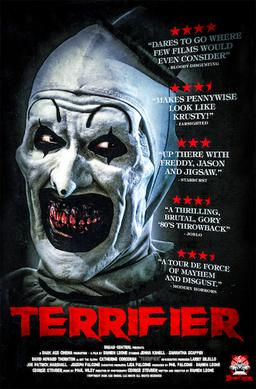Mama (2013) review
- Jeremy Kelly
- Oct 28, 2021
- 4 min read
28. Mama (2013)
Directed by: Andy Muschietti
Produced by: J. Miles Dale, Barbara Muschietti
Screenplay by: Neil Cross, Andy Muschietti, Barbara Muschietti
Starring: Jessica Chastain, Nikolaj Coster-Waldau, Megan Charpentier, Isabelle Nélisse, Daniel Kash, Javier Botet

Before wowing critics and audiences with his adaptation of Stephen King’s “It,” director Andrés “Andy” Muschietti came out with “Mama” in 2013, based on his own three-minute short film that impressed Guillermo del Toro so much that he agreed to be an executive producer. I remember this movie being a bit of a sleeper hit, but then it sort of got lost to the Hollywood horror zeitgeist of the early 2010s; I’m guessing being one of the main films spoofed in “Scary Movie 5” helped people voluntarily suppress it. That movie was filmed before “Mama” even came out, why the hell do you spoof a film you haven’t even seen yet—whatever, let’s not get into it. I admit that I never saw it in theaters, but it was on my radar for a long time, so I figured I’d finally give it a watch; hell, it stars Jessica Chastain, one of my favorite contemporary actors. And while certainly not breaking any new ground and containing a myriad of clichés and questionable choices, it’s a fairly thrilling time.
It opens cheerfully enough, with stockbroker Jeffrey (Nikolaj Coster-Waldau) killing two of his colleagues, his wife, and stealing his two daughters away to an abandoned cabin in the woods following the 2008 economic crisis. The despondent Jeffrey plans to kill them and himself, but is attacked and killed by a shadowy figure. Five years later, his identical twin brother Lucas locates the girls, Victoria (Megan Charpentier) and Lily (Isabelle Nélisse), via search party, alive but in a feral state. He eventually takes them home with his musician girlfriend Annabel (Chastain), while they undergo therapy with Dr. Gerald Dreyfuss (Daniel Cash). They gradually start to adjust; but they frequently talk to a supernatural entity they call “Mama,” whose protective habits range from loving to obsessively violent, which lands Lucas in a coma. Annabel—initially a reluctant mother figure—must find her own maternal instincts to keep Victoria and Lily safe, while also trying to discover the story behind Mama.

I’ve said before that I love horror movie heroines who are also mothers, but Annabel is a very different kind. She makes it clear early on that she doesn’t want this role; she’s probably never been interested in having her own children, which makes the circumstances quite interesting. At times, she gets a little too dismissive, but you can understand some of where she’s coming from. It’s not like she hates Victoria and Lily; she just hasn’t allowed herself to feel that way loving mothers feel and is now overwhelmed at the idea of having all of this dropped onto her, which is totally believable. Chastain had just recently received her second Oscar nomination for “Zero Dark Thirty,” and she’s a powerhouse in this role; watching her slowly take on that nurturing responsibility is sweet and endearing.
So Annabel’s relationship with the girls is what you latch onto, and Megan Charpentier feels natural as Victoria, the older of the sisters who adapts much quicker, while Lily becomes rather pandering and frustrating to a viewer overall. I’m not a child psychologist; I don’t know how kids process everyday life, much less a return to normalcy after living in the woods for five years, but it feels underdeveloped, like the script is more concerned with Mama than the girls. So what we do get from them is pretty basic and not terribly engaging, except when it’s directly related to them and Annabel warming up to each other. And this is a really interesting premise; their only companion was a spirit that becomes malevolent when someone else moves in. How does a child deal with something like that?

But there’s too much time spent with Dreyfuss, who isn’t that interesting, and I didn’t even mention Jean (Jane Moffat), Victoria and Lily’s great-aunt who contests Lucas and Annabel’s custody claim. Everything about this plot line feels unnecessary and forced, like they thought they needed an extra layer, so they went with something out of a Lifetime movie. The horror elements vary; I like the design on Mama—who’s portrayed by Javier Botet, a veteran of creature roles in the 21st century—and there’s a decent old-school, somewhat grimy funhouse vibe that still has some fairy tale eccentricities; no wonder Del Toro wanted to put his name on this. But it’s nothing we haven’t seen before; there might be a couple inconsequential surprises in there, but they don’t really add enough to make you jump out of your seat. I also don’t like the ending; I can’t tell if it’s trying to be really melancholy or hopelessly corny, but it’s just kind of a confusing mess.
Don’t get me wrong; “Mama” is a decent movie, and it’s good at building momentum the longer it goes. I also like plenty of the slightly abstract visuals, especially in this one sepia tone-tone flashback sequence where we actually see what happened to Mama, a mental patient named Edith (Hannah Cheesman) who stole her child back from nuns and died while trying to escape. But the story itself doesn’t make a lot of sense, and there are moments that feel cliché in a lazy way, not a fun, self-aware way. So the film is certainly a mixed bag; I think it really could’ve been something deep and meaningful, and there are snippets of that here, but there’s a lot of crap that gets in the way. The opening for example could’ve been almost entirely cut, Lucas is sidelined for way too long, and the girls too often feel like plot devices rather than fleshed-out characters. However, I still think it’s okay, just not one that will leave you crying for your own mama tonight.
My rating: 7/10





Comments